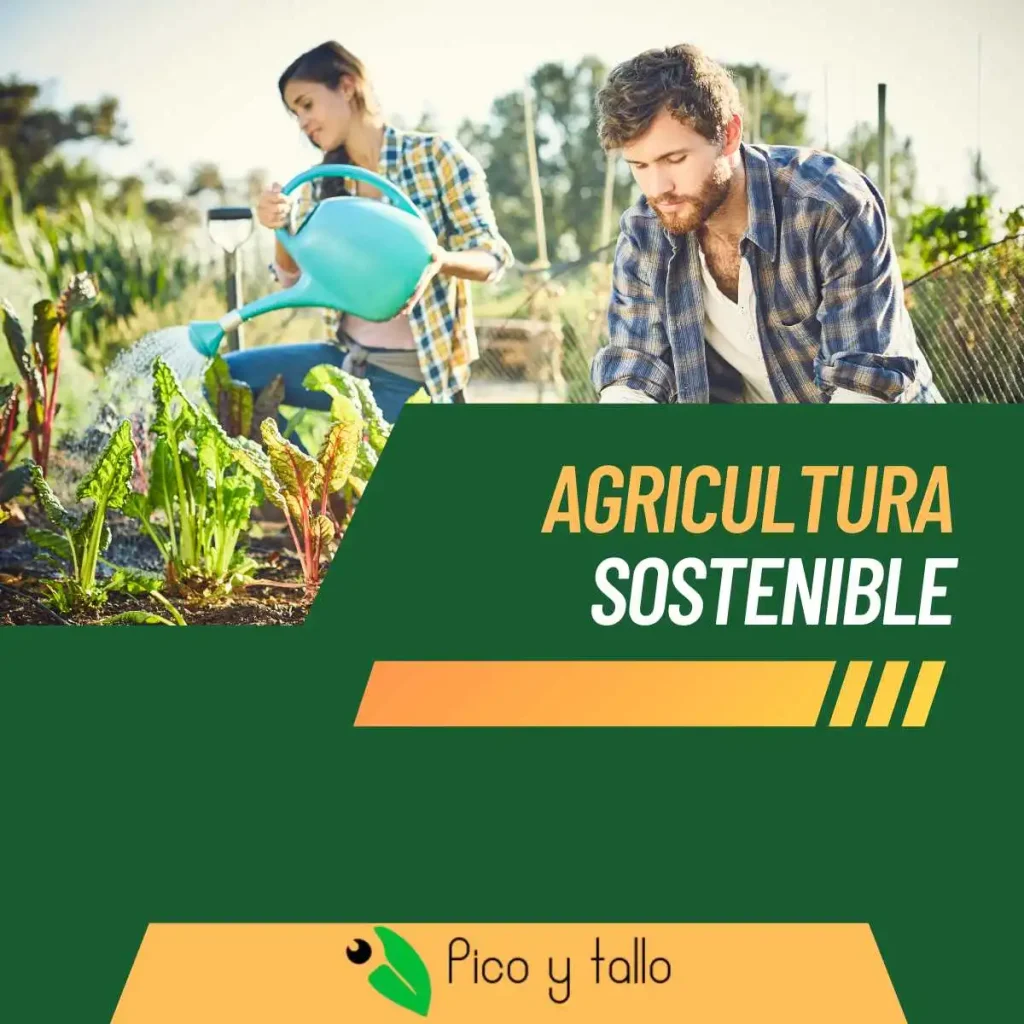It is important to consider the origin when making dietary decisions, especially when looking for ways to maintain a balanced diet.
Today, sustainable agriculture plays an important role in our diet, not only because it provides nutrient-rich food, but also because it protects the environment and promotes animal welfare.
In this article we will take a closer look at sustainable agriculture and how it affects what we eat.
What is sustainable agriculture and why is it important?
Sustainable agriculture is an ecological system of production management that aims to maintain and efficiently regenerate all natural resources used in the process. It uses integrated practices, such as crop rotation and polyculture, to ensure a diverse, healthy and productive ecosystem.
This can be beneficial for several reasons: organic farming produces quality food free of harmful chemicals, positively impacts climate change by minimizing emissions and increasing carbon sink capacity, and seeks to promote equitable access to resources while producing environmental, economic and social benefits. In addition, biologically rich agricultural lands can also provide popular landscapes for recreational activities and enhance biodiversity levels throughout the region.
In short, sustainable agriculture is a farming system that must be taken into account if we want to guarantee a healthy future for generations to come.
Benefits of sustainable agriculture for the environment
Sustainable agriculture has countless benefits for our environment. It conserves resources and at the same time makes them more efficient, which reduces the overall impact on the planet.
Sustainable practices consist of farming in harmony with nature, minimizing artificial inputs such as chemicals and favoring natural solutions such as crop rotation and companion planting. This maintains soil fertility, reduces erosion and conserves water. In addition, sustainable agriculture can enhance biodiversity by focusing on growing different crops in rotation rather than specializing in a few, which keeps the soil healthy throughout the year.
All this translates into an important result: sustainable agriculture is a vital tool for preserving our planet’s resources and protecting its health for generations to come.
How sustainable agriculture can strengthen local communities
Sustainable agriculture is an excellent way to strengthen local communities and help people become more self-sufficient. Working together with the community, farmers can create efficient and beneficial farming practices that optimize land use while actively preserving the natural environment.
These practices will not only protect soil systems, but can also reduce water consumption, increase crop yields and improve air quality by providing carbon sinks that remove carbon dioxide from the atmosphere. By developing sustainable agricultural methods, communities will be able to create healthy food using fewer resources and preserve their unique ecosystems for generations to come. Working together toward a shared goal of livelihoods for all is what will help build strong and lasting local communities that will endure for years to come.
Examples of sustainable agricultural practices
Sustainable agriculture is not just about growing crops, but about how to increase yields while preserving the environment and resources. Sustainable practices such as crop rotation, conservation tillage, cover crops, integrated pest management, organic farming methods and no-till farming can help farmers achieve their goals while ensuring that future generations can continue to benefit from the land.
This approach is easier on natural resources and provides farmers with an in-depth knowledge of their land. By working with nature rather than against it, sustainable agriculture can protect us against crop loss due to climate change or other factors, while protecting water tables, soils, wildlife habitats and open spaces.
Importance of organic products
Organic products are becoming more and more popular, and for good reason! Organic products not only taste better and have a higher nutritional content, but they are also produced without the use of chemical pesticides that can be harmful to our environment.
By supporting organic farmers, we are encouraging sustainable agricultural practices that preserve our soil and limit water pollution caused by agricultural runoff. In addition, purchasing organic products supports small businesses committed to producing healthier, ethically sourced food.
These positive effects far outweigh those obtained with processed and artificially infused foods. So why not choose organic products whenever you can? Your wallet and your body will thank you for it in the long run
0 kilometer land products
If you are looking for a unique shopping experience, nothing beats kilometer 0 products. This area offers incredible sensory experiences with local producers offering their traditional and organic products in a lively and vibrant atmosphere.
From wine to olive oil to cooked dishes, this place is full of amazing culinary delights. Local farmers also offer their fresh produce here, making it ideal for stocking up on all your healthy staples while supporting the local economy. But that’s not all: you can also find crafts, cheeses and much more, so come ready to explore!
Sustainable agriculture is the sustainable savior of our planet, providing food, energy and economic benefits. Its principles focus on more efficient, resource-friendly farming methods adapted to local conditions that have a low environmental footprint while optimizing crop production.
Sustainable agriculture offers numerous benefits to farmers, societies and the environment, from reducing water wastage, soil erosion and greenhouse gases to improving livelihoods, biodiversity conservation and nutrient cycling.
From organic food production to selling in local markets, to products with kilometer 0 land characteristics, there are many ways to support sustainable agriculture and contribute to a healthier planet for all. As industry leaders and as citizens, it is time for us to take action. By making small changes throughout society, we can all benefit from a green and resilient world. Let’s take the leap together!
